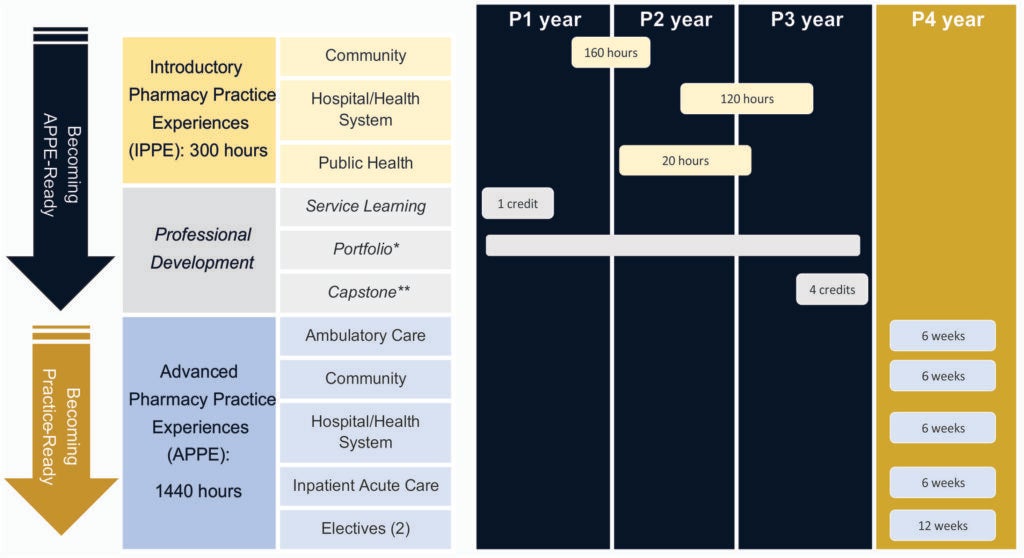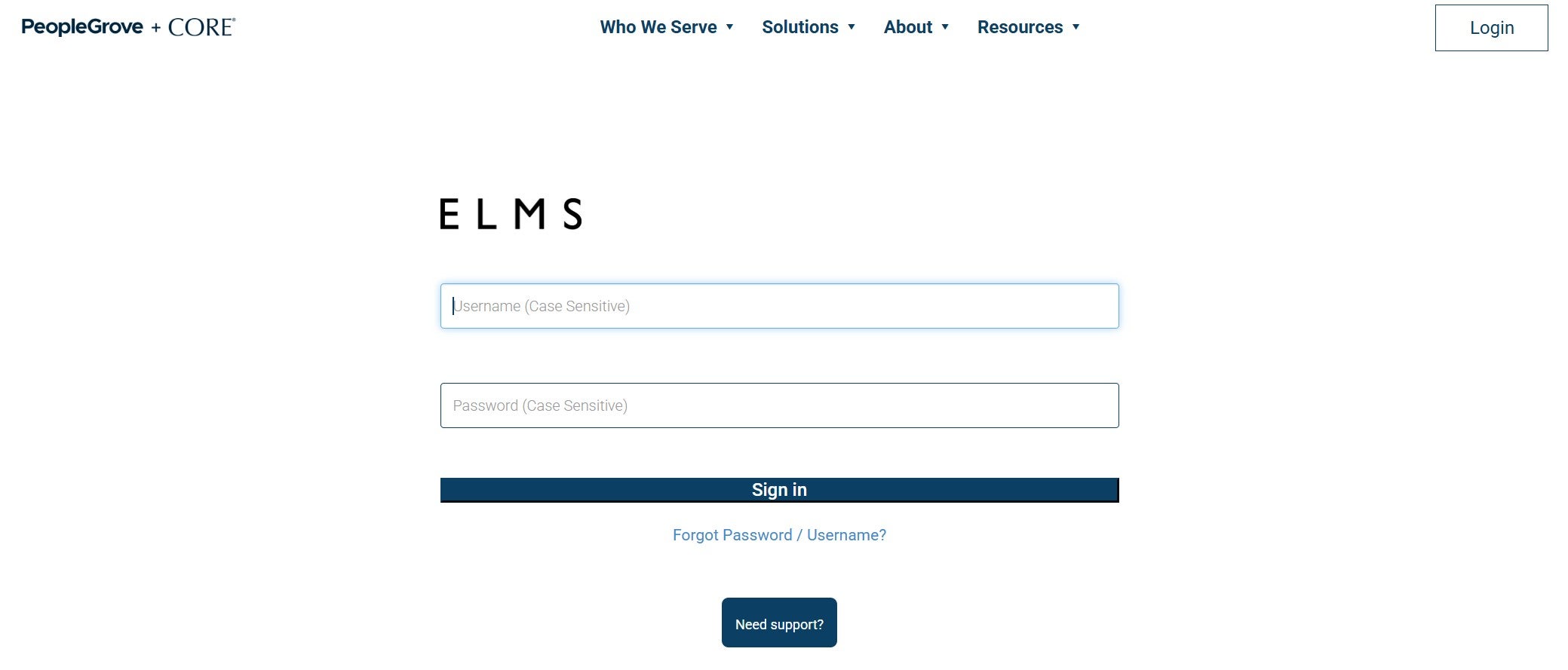Located in Suite 225 on Level 2 of Avedisian Hall
PharmD
As part of the Doctor of Pharmacy (Pharm.D.) curriculum, students are required to complete both Introductory Pharmacy Practice Experiences (IPPE) and Advanced Pharmacy Practice Experiences (APPE). The Office of Experiential Education (OEE) in the College works closely with Pharm.D. students to match them with practice experiences that align with their prior work experience and future career goals as part of the broader curriculum.
Introductory Pharmacy Practice Experiences (IPPE) start at the end of the first professional year and are essential for students in the professional curriculum to acquire an overview of pharmacy practice and its role in health care. IPPE is designed to progressively develop the professional insights and skills necessary to advance into responsibilities in APPE. IPPE involves interaction with practitioners and patients to advance patient welfare in authentic pharmacy practice settings and provides exposure to both medication distribution systems and high-quality, interprofessional, team-based patient care.
The last year of the curriculum consists solely of experiential learning called Advanced Pharmacy Practice Experiences (APPEs). APPE ensures that students have multiple opportunities to perform patient-centered care and other activities in a variety of settings. APPE hones the practice skills, professional judgment, behaviors, attitudes and values, confidence, and sense of personal and professional responsibility required for each student to practice independently and collaboratively in a team-based care environment.To learn more about how the experiential components fit into the broader curriculum, learn more at the Pharm.D. program page.
Experiential Education Overview

* Completed alongside the curriculum for personal and professional development in preparation for APPE.
** This course is a part of the didactic curriculum designed as a final assessment Spring P3 year of APPE readiness.
Frequently Asked Questions
Can I get paid for my experiential rotations?
Based on accreditation standards that the College of Pharmacy adheres to, students are not allowed to be paid as an employee or receive any stipends for any experiential experience that is part of the curriculum.
Do I choose my own sites?
No, the Office of Experiential Education will assign you to your site. The OEE will work with each student individually for the best fit based on career goals, location, and availability.
Can I complete a pharmacy practice experience at the same pharmacy or hospital I am employed?
Generally, no. There are some exceptions for clinical specialty rotations in the hospital setting. It is important that students use these experiences to try new and different settings to expand their knowledge base.
What sites are considered ‘in-area’ sites?
‘In-area’ is defined as a 60 mile radius of Providence. This means sites within Rhode Island, as well as bordering areas of Connecticut and Massachusetts, including Boston.
Can I do all my rotations at home if I am not from RI?
Most likely not, unless you live in areas of Massachusetts or Connecticut that fall within the 60-mile limit. While the College does have partnerships with more than 300 practice sites nationwide, the majority of these are located in New England. Rotation placements change each year depending on preceptor availability, so students outside the region should not expect to complete all of their rotations at home.
Can I nominate a new pharmacy or practice site near my hometown?
The Office of Experiential Education will consider nominations of both community and hospital sites currently not affiliated with the College of Pharmacy. Sites will only be approved if both parties sign a legal affiliation agreement and the site offers a quality educational experience. There is a New Site Request Form for students to complete and submit to the OEE. The request will be reviewed by a committee and the student will be notified of the outcome.
Contacts
Brett Feret, Pharm.D.
Clinical Professor, Director of Experiential Education
Office: 225C
401.874.2320
bferet@uri.edu
Erica Estus, Pharm.D., BCGP
Clinical Professor, Director of Recruitment and Community Engagement
Office: 225B
401.874.7638
estus@uri.edu
Elizabeth St. Louis, Pharm.D.
Director, PharmD Program
Office: 225D
401.874.5418
estlouis@uri.edu
Sarah Gallo, M.S.
Coordinator, Pharmacy/Professional Experiential Programs
Office: 215B401.874.5006
sarah_gallo@uri.edu
B.S. in Biomedical and Pharmaceutical Science Internships
We recognize that hands-on experience is just as important as the knowledge-based learning gained in the classroom. Required laboratory courses will provide broad and consistent training for all students. Experiences in companies or faculty research labs are optional, but highly encouraged and supported by the program.
Students in the B.S.P.S. program receive support in pursuing internships through the program faculty.
Contact
Philip Marchetti
Academic Advisor, Fannon Institute for Student Success (FISS)

